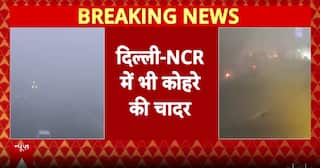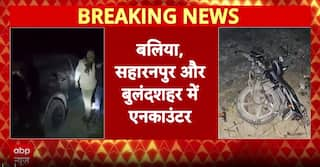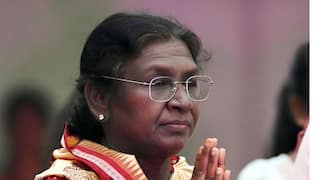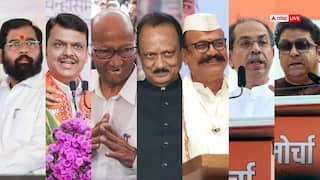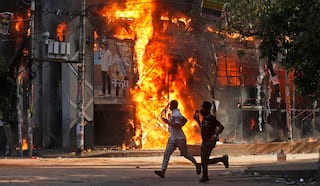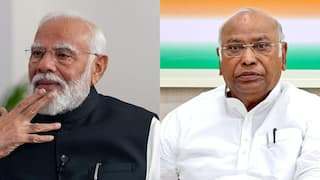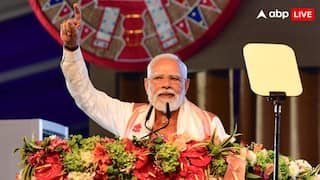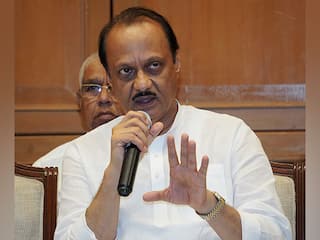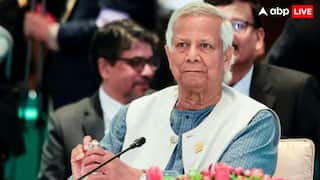India-China Military Talks: Army Calls 12th Round Of Meeting 'Constructive', Says 'Enhanced Mutual Understanding'
India has been insisting that the resolution of the outstanding issues, including at Depsang, Hot Springs and Gogra, is essential for the overall ties between the two countries.

New Delhi: The Indian Army on Monday issued a joint statement over the 12th round of the India-China Corps Commander level meeting that was held on July 31 at the Chushul-Moldo border meeting point on the Indian side.
The meeting aimed to reach an agreement for the next phase of disengagement in Hot Springs, Gogra, and other remaining friction points in eastern Ladakh.
ALSO READ | Pegasus Row: In First Among BJP Allies, Bihar CM Nitish Kumar Bats For Probe Into Snooping Claims
"The two sides had a candid and in-depth exchange of views on resolution of remaining areas related to disengagement along the Line of Actual Control in the Western Sector of India-China border areas. The two sides noted that this round of meeting was constructive, which further enhanced mutual understanding," the Army wrote in a statement.
It said that both sides agreed to resolve these remaining issues in an expeditious manner in accordance with the existing agreements and protocols and maintain the momentum of dialogue and negotiations.
"The two sides also agreed that in the interim they will continue their effective efforts in ensuring stability along the LAC in the Western Sector and jointly maintain peace and tranquillity," the statement added.
The Indian and Chinese armies have described as "constructive" the 12th round of military talks on the eastern Ladakh row even as no concrete outcome was visible on the much-anticipated disengagement process in the remaining friction points.
The Indian delegation was led by Leh-based XIV Corps chief Lt Gen PGK Menon and Naveen Srivastava, the Additional Secretary (East Asia) in the Ministry of External Affairs. On the other hand, the Chinese military delegation was headed by Commander of the PLA's Western Theatre Command Xu Qiling, who was appointed earlier this month.
The talks began as scheduled at 10:30 AM and ended at 7:30 PM.
Prior Developments In India-China Talks
India has been insisting that the resolution of the outstanding issues, including at Depsang, Hot Springs and Gogra, is essential for the overall ties between the two countries.
The 12th round of talks took place after a gap of over three and a half months as the 11th round of military dialogue had taken place on April 9 at the Chushul border point on the Indian side of the LAC and it lasted for about 13 hours.
It came weeks after External Affairs Minister S Jaishankar firmly conveyed to his Chinese counterpart Wang Yi that the 14-month standoff and the prolongation of the existing situation in eastern Ladakh were visibly impacting the bilateral ties in a "negative manner".
The two foreign ministers had held a one-hour bilateral meeting on the sidelines of a conclave of the Shanghai Cooperation Organisation (SCO) in Tajik capital city Dushanbe on July 14.
In the meeting, EAM Jaishankar stressed that any unilateral change in the status quo along the LAC was "not acceptable" to India and that the overall ties can only develop after full restoration of peace and tranquillity in eastern Ladakh.
In the military talks held in April, both sides discussed ways to take forward the disengagement process in Hot Springs, Gogra, and Depsang with a larger aim to bring down tensions in the region. But there was no forward movement in the disengagement process after that.
The border standoff between India and China erupted in May last year following a violent clash in the Pangong lake areas and both sides gradually enhanced their deployment by rushing in tens of thousands of soldiers as well as heavy weaponry.
To resolve the border tensions, a series of military and diplomatic talks have been held by the two sides as they completed the withdrawal of troops and weapons from the North and South banks of Pangong lake in February in line with an agreement on disengagement.
Currently, each side has around 50,000 to 60,000 troops along the LAC in the sensitive sector.












